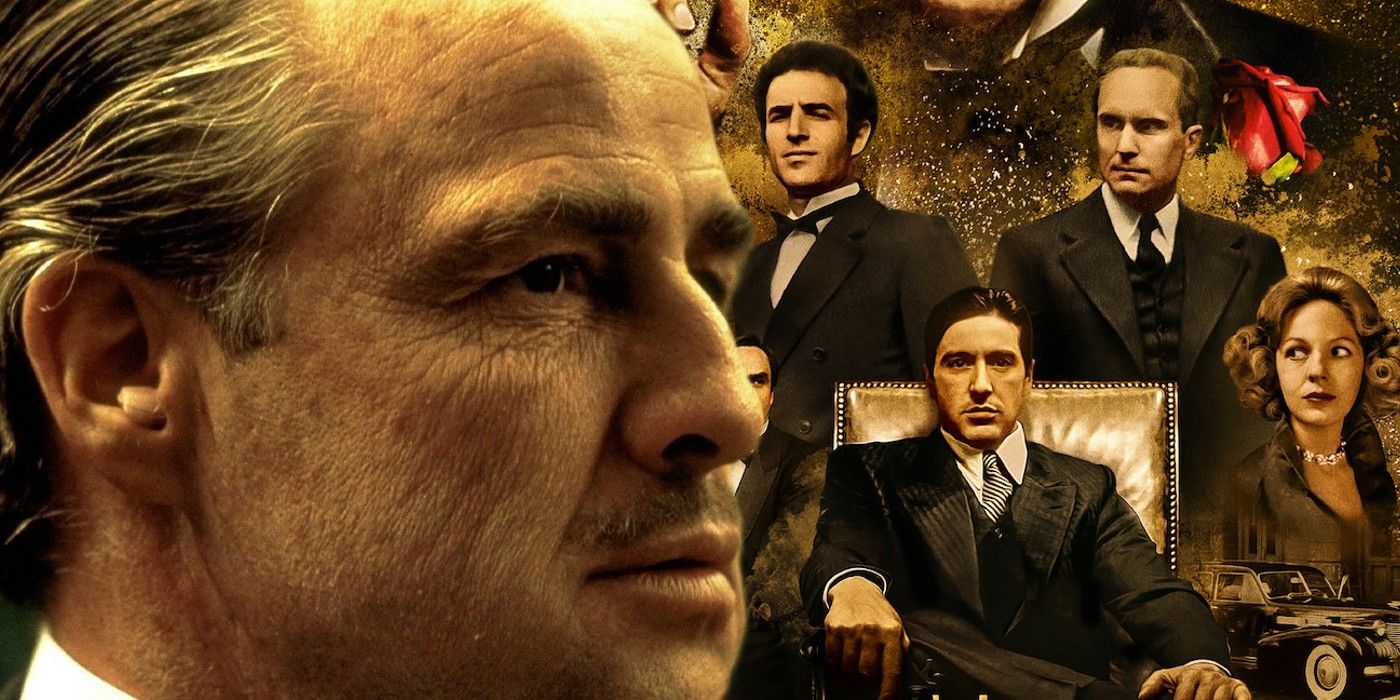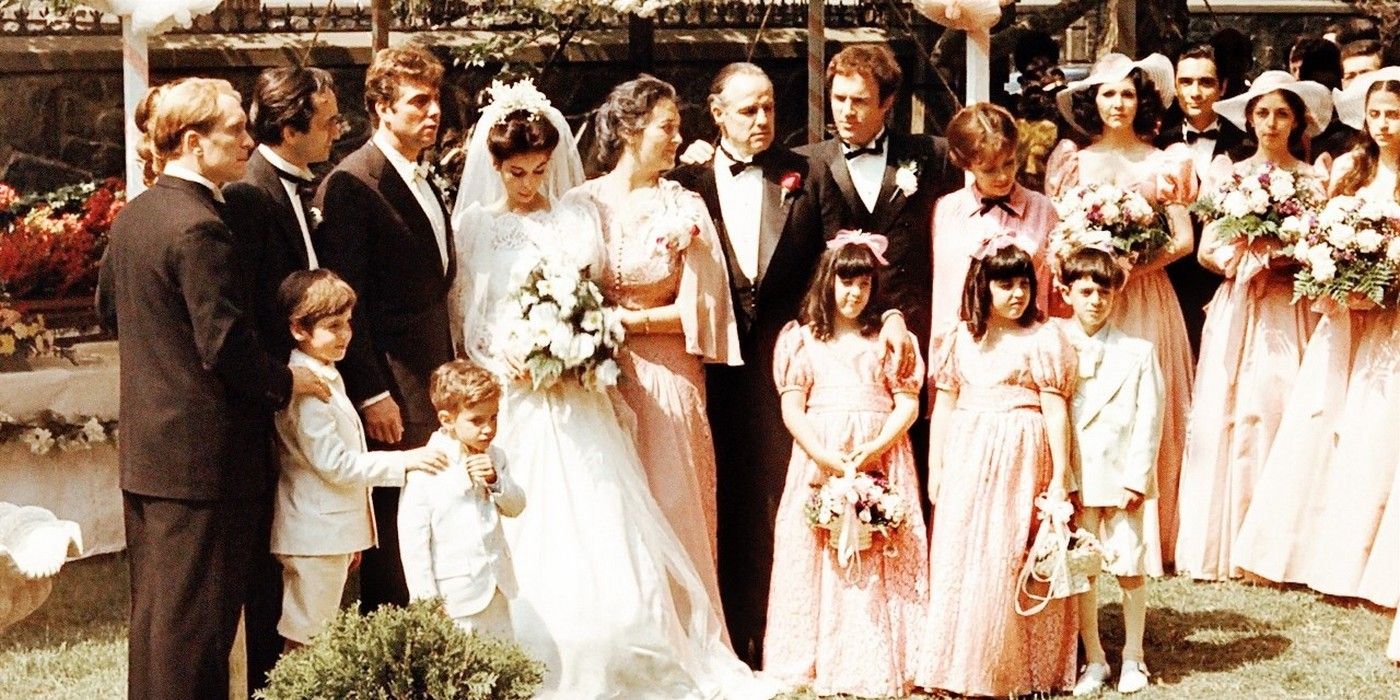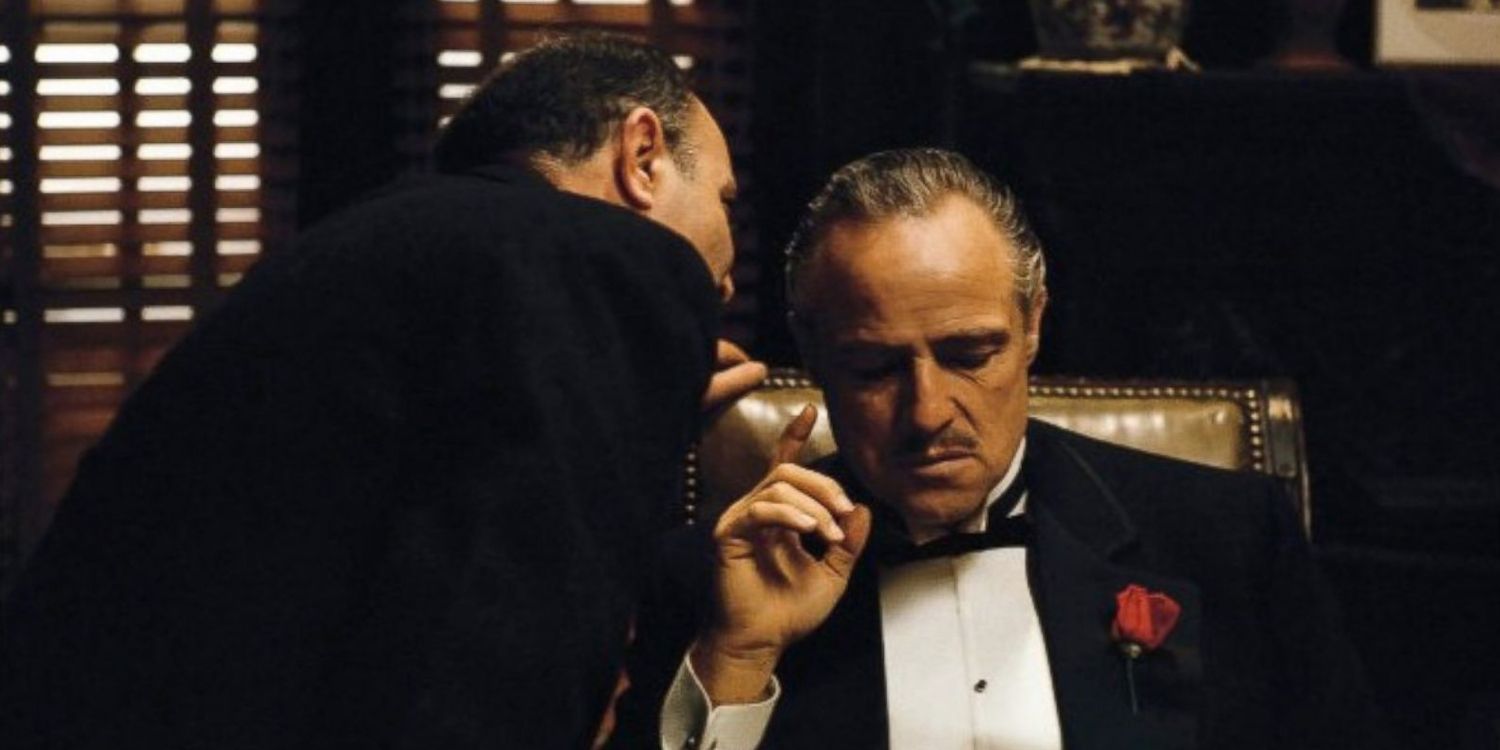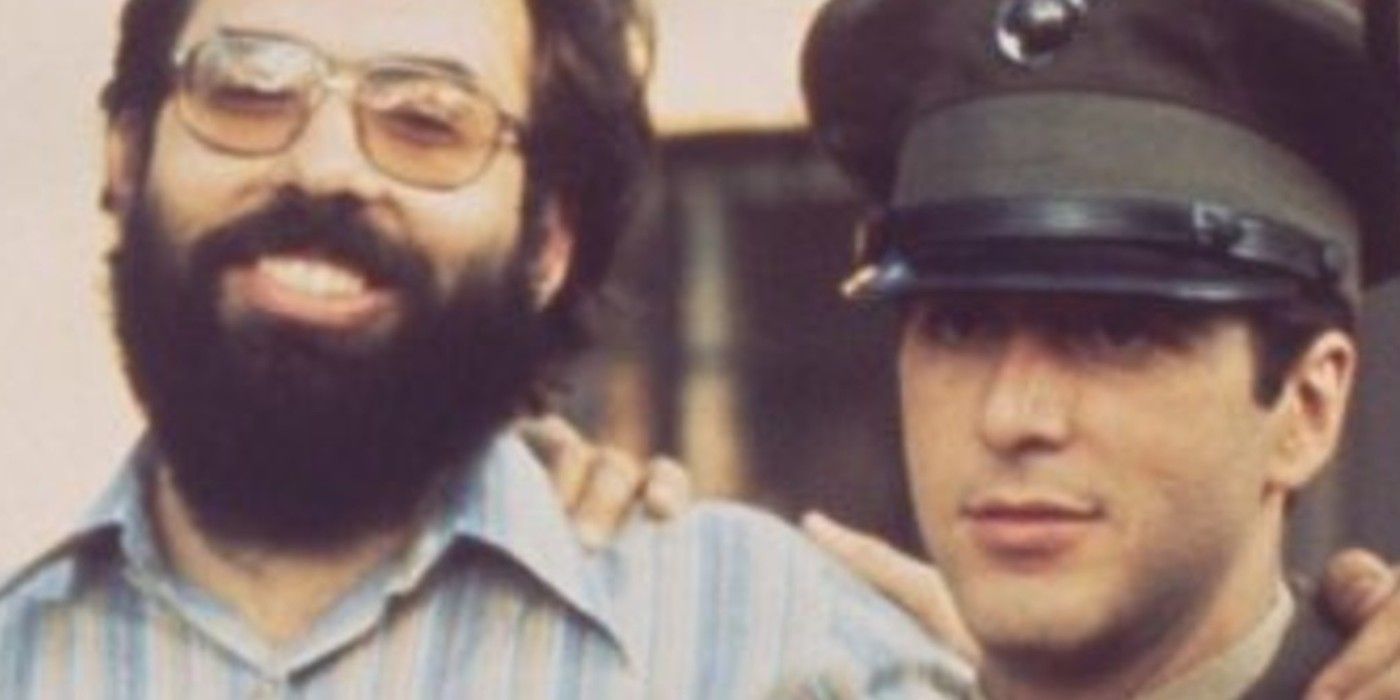After 50 years at the head of the table, Francis Ford Coppola's epic The Godfather remains undisputed as the Don of gangster movies. Based on the hit novel by Mario Puzo (who would also co-write the movie's script), The Godfather elevated Francis Ford Coppola from cinematic obscurity to worldwide Hollywood renown. Chronicling the times and troubles of the Corleone family, The Godfather racketeered the box office, made an offer the Oscars couldn't refuse, and had critics queuing up to pay their respects. As the years passed by, The Godfather became a leading contender in any credible "best movies of all time" conversation.
Originally premiering in March 1972, The Godfather's 50th anniversary is now upon us. To celebrate the occasion, Coppola's crime masterpiece is getting a limited theatrical re-release, launched at a star-studded LA event where the director and a handful of original cast members (most notably James Caan and Talia Shire) were in attendance.
The Godfather's reputation and popularity hasn't waned even slightly over the past five decades, and the Corleone name means just as much here in 2022 and it did in 1972 - if not more. Despite being parodied to death and launching multiple generations of gangster epics through the 1990s and beyond, The Godfather retains its title as the king of cinematic organised crime capers. Here's why Francis Ford Coppola's magnum opus still demands respect 50 years later.
The Godfather Isn't REALLY About Gangsters - It's About Family
Suggesting mafioso isn't The Godfather's primary focus is like claiming Star Wars isn't really about fighting in space, but bear with us. Cut through the bloodstained streets, the tense showdowns between crime bosses, and the cultural machismo that came to define an entire genre, and The Godfather, in its absolute purest form, is a movie about family.
Anyone would be forgiven for assuming Francis Ford Coppola's focus is the Corleone victory over New York's Five Families, or the devolution of an honest man into a criminal. For some, The Godfather is a commentary on society and the American dream. Those ingredients are absolutely vital to The Godfather's recipe, but the story's true heartbeat is the Corleone family dynamic itself, with every iconic moment and milestone rooted in their relationships. The war between the Corleones and the Tattaglias resonates because of Don Vito's heartbreaking reaction to Sonny's death. Michael's evolution into the new Don Corleone speaks to his father-son connection with Marlon Brando's character. Then, after The Godfather's original Don retires, Puzo's script shifts focus onto the remaining Corleone siblings - Michael, Fredo, Connie and Tom Hagen - as well as Michael's own growing family with Diane Keaton's Kay. The Godfather's final shot, where Kay watches her husband inherit the Corleone throne, proves the story's true meaning is family... not just the family.
Though The Godfather has been copied ceaselessly over the past 50 years, few gangster movies since have depicted the theme of family with that same respect - even the really great ones. Martin Scorsese's Goodfellas comes as close as any film to stealing The Godfather's crown, but the tale of Henry Hill is more concerned with Henry himself - the lure of the criminal lifestyle, mafia culture, the corrupting influence of illegality. The same could be said for Scarface and plenty of others, and you'd need to turn toward the small screen, find HBO, and put on The Sopranos for a gangster story that honors family with the same importance as The Godfather.
The Godfather's familial heart is the secret ingredient that keeps Francis Ford Coppola's classic as fresh in 2022 as it was 50 years earlier. Try as they might, your average viewer can't relate to the antics of a mafia crime family, but many can understand feeling a father-son sense of duty, facing fiery sibling tensions, losing someone precious, or having a husband who isn't the man you fell in love with. Placing value on these universal themes goes a long way toward explaining why The Godfather remains so relevant so long after its 1970s premiere.
The Godfather Redefined What A Gangster Movie Could Be (& Still Does)
Contrary to popular belief, gangster movies did actually exist before 1972. The arrival of The Godfather, however, certainly heralded a new dawn for the genre. Before The Godfather, gangster movies were mostly pulpy ventures dwelling on the border of film noir - a category even Mario Puzo's original novel broadly falls into. There's nothing inherently negative about that, and the pre-Godfather era produced classics of its own, including Angels With Dirty Faces (1938), Scarface (1932), and White Heat (1949). When Francis Ford Coppola began making The Godfather in 1970, he honored the gangster genre's noir-ish roots with shadowy cinematography and that iconic golden-brown glow, but then ventured into new territory by accentuating the tone of a grand, operatic narrative. Without skimping on the violence and coarseness of his subject matter, Coppola elevated the gangster movie into something resembling a Mascagni opera, where drama deepened, emotions heightened, and symbolism reigned.
For a modern equivalent of how The Godfather rewrote Hollywood's gangster movie rule book, see Christopher Nolan's The Dark Knight. Before Christian Bale's Batman clashed against Heath Ledger's Joker, Hollywood held certain preconceptions about what a "superhero movie" could be. Plenty of amazing adaptations had already happened before then, of course, but the genre unarguably had a ceiling. The Dark Knight broke through that barrier, and become something more - an Oscar-worthy opus packed with top-tier performances and storytelling as nuanced as you'll find in any other genre. The Godfather did exactly the same for the gangster film, ripping off the shackles of genre in spectacular fashion.
50 years later, The Godfather's influence feels as present as it ever has been. Francis Ford Coppola's imprint upon Scorsese, Chase, Tarantino, Ritchie, etc. through the 1980s and 1990s is clear to see, and those filmmakers have in turn inspired a new generation. Nevertheless, The Godfather remains a go-to fountain of bloody wisdom for writers and directors alike in the modern era. Breaking Bad and Better Call Saul draw heavily from the tragedy of Don Corleone, both in terms of narrative themes and visual hallmarks. Coppola's tricks can be found in the work of younger directors such as Edgar Wright (Shaun of the Dead's kettle noise perfectly mirrors Michael Corleone's train crescendo), and whenever a gangster movie or TV series debuts, The Godfather is still the unreachable standard to which those newcomers are held. Even the existence of The Offer - a TV series based solely around how The Godfather was made - proves Don Corleone isn't disappearing from our cultural consciousness any time soon.
The Godfather Is Timeless Because It Shouldn't Have Happened
The Godfather is a film set in 1950s America, released in 1972, and yet has a timeless quality that transcends either era. The universal theme of family and modern filmmakers continuing to call upon The Godfather as a source of influence both contribute to that - but the Corleone family's longevity also owes a debt to the sheer struggle that happened behind-the-scenes.
Francis Ford Coppola has spoken at length about the horrible time he endured making The Godfather. So difficult was the film's production, the DVD director's commentary at times feels like a therapy session. Coppola faced studio interference from start to finish, with Paramount hating more or less everything he was doing - casting, cinematography, editing, music. At the time, Coppola was an up-and-coming filmmaker with precious little in the way of industry muscle, and came perilously close to being fired numerous times. By virtue of Don Vito himself, Marlon Brando, threatening to walk out in protest, and an incident where Coppola simultaneously axed every member of production who was lobbying for a new director, The Godfather pushed ahead.
And it wasn't just studio executives The Godfather came up against, with real life gangsters concerned about how their world would be portrayed onscreen. Paramount and Coppola faced resistance from these hardened criminals, and found themselves threatened with violence on numerous occasions. Rather than give up, Coppola and producer Albert S. Ruddy tried reasoning with the mafioso rallying against their movie... and succeeded. They succeeded to such a degree, in fact, some Italian-American gangsters even became involved in The Godfather's production.
What makes The Godfather so unique, even among fellow gangster movies, is just how unlikely the project was. Given every stumbling block The Godfather faced, and every battle Francis Ford Coppola had to withstand, it's miraculous how the director protected his creative vision and produced The Godfather in its intended form. How many other directors under 30 could've avoided weekly firing attempts and relentless clashes over every single creative choice, only to eventually emerge with a 3-hour major studio blockbuster that hadn't been watered down? How many gangster movies not only survived aggressive overtures from the actual mafia, but ended up embracing that world as part of its DNA? And how many were able to assemble a cast that would dominate Hollywood for the next 50 years, and commission a soundtrack as iconic as anything ever heard in a movie theater?
Making The Godfather was one of the most difficult times in Francis Ford Coppola's life, and 99 times out of 100, the final product would've been ruined by studio meddling or cancelled altogether. The Godfather is a rare exception where a series of unlikely factors boldly came together to produce not only the king of gangster movies... but the king of movies as a whole.




